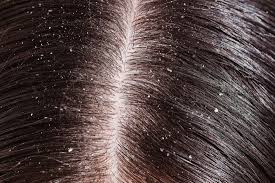Dandruff is a skin condition mainly affecting the scalp.Dandruff scale is a cluster of corneocytes, which have retained a large degree of cohesion with one another and detach as such from the surface of the stratum corneum.
According to one study, dandruff has been shown to be possibly the result of three factors.
- Skin oil commonly referred to as sebum or sebaceous secretions
- The metabolic by-products of skin micro-organisms (most specifically Malassezia yeasts)
- Individual susceptibility and allergy sensitivity.
Home remedies:
Treatment aims to stop the dandruff by slowing down the reproduction of skin cells or counteracting the yeast production that might be the cause.
The strategy will depend the patient’s age and the severity of the condition. However, there are some lifestyle changes and home remedies that can help; these include:
Managing stress: stress can trigger dandruff in some people, so managing it better can reduce symptoms.
Shampoo more often: if you have oily hair and scalp, washing daily can help.
Sunlight: a little exposure to sunlight can be helpful.
Tea tree oil: although there is little evidence, some people believe that preparations that include tea tree oil help reduce symptoms of dandruff. It can cause allergic reactions in some people, so use caution.
Treatment:
Shampoos and scalp products are available over the counter at most stores and pharmacies. These can control seborrheic dermatitis, but they cannot cure it.
Most anti-dandruff or anti-fungal shampoos contain at least one of the following active ingredients:
- Ketoconazole: An effective anti-fungal. Shampoos containing this ingredient can be used at any age.
- Selenium sulfide: This reduces the production of natural oils by glands in the scalp. It is effective at treating dandruff.
- Zinc pyrithione: This slows down the growth of yeast.
- Coal tar: This has a natural anti-fungal agent. Dyed or treated hair may become stained by long-term usage. Tar soaps may also make the scalp more sensitive to sunlight, so users should wear a hat when outside. Coal tar can also be carcinogenic in high doses.
- Salicylic acids: These help the scalp get rid of skin cells. They do not slow down the reproduction of skin cells. Many “scalp scrubs” contain salicylic acids. Treatment can sometimes leave the scalp dry and make skin flaking worse.
- Tea-tree oil: Derived from the Australian Tea Tree (Melaleuca alternifolia), many shampoos now include this ingredient. It has long been used as an anti-fungal, an antibiotic, and an antiseptic. Some people are allergic to it.
The best strategy is to select a shampoo containing one of these ingredients and shampoo the hair every day until the dandruff is under control.After this, they can be used less frequently.
Alternating dandruff shampoo with regular shampoo may help. A specific shampoo may stop being as effective after some time. At this point, it may be a good idea to switch to one with another ingredient.
Some shampoos should be left on the scalp for around 5 minutes, as rinsing too quickly will not give the ingredient time to work. Others should be rinsed at once. Users should follow the instructions on the container.






